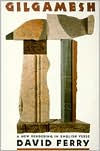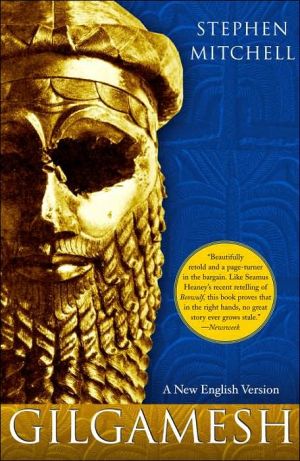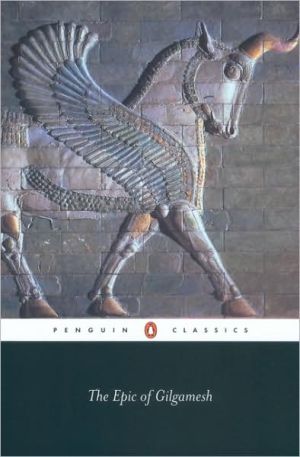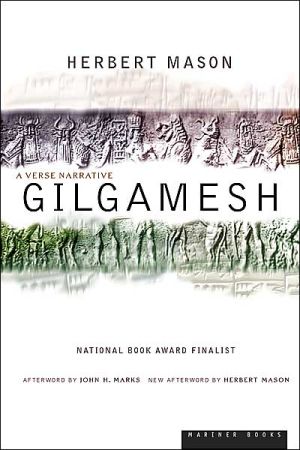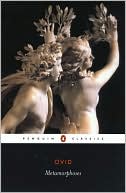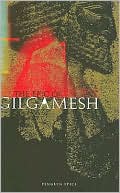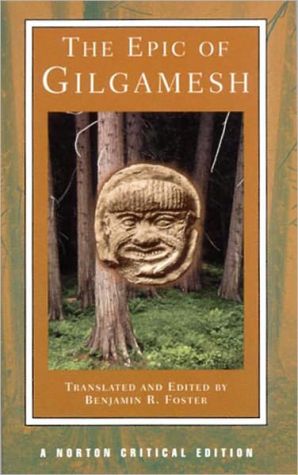Gilgamesh: A New Rendering in English Verse
A new verse rendering of the great epic of ancient Mesopotamia, one of the oldest works in Western Literature. Ferry makes Gilgamesh available in the kind of energetic and readable translation that Robert Fitzgerald and Richard Lattimore have provided for.
Search in google:
A new verse rendering of the great epic of ancient Mesopotamia, one of the oldest works in Western Literature. Ferry makes Gilgamesh available in the kind of energetic and readable translation that Robert Fitzgerald and Richard Lattimore have provided for.Publishers WeeklyFerry's ( On the Way to the Island ) version of this Mesopotamian epic is not simply a translation but an artful interpretation which aims to convey the spirit rather than the letter of the fragmentary original. Working from scholarly translations of the Sumerian and Akkadian tablets but departing from them freely, he has produced a ``rendering'' with shape and wholeness. And Ferry has enhanced the closeness of the relationship between Gilgamesh and Enkidu, the wild man created by the gods to temper the hero's fierceness. Early in the poem, Gilgamesh sagely tells Enkidu, ``The life of man is short. / What he accomplishes is but the wind.'' After Enkidu's death, Gilgamesh is driven to seek the secret of eternal life from Utnapishtim, who was granted eternal life. Gilgamesh learns bitterly the truth of his own words in the beautiful but unconsoling speech of the wise man: ``Time after time the river has risen and flooded. / The insect leaves the cocoon to live but a minute.'' Ferry's iambic pentameter is more lyrical than epic, and captures the elegiac and ironic undertones of Gilgamesh's failed search for immortality. One senses that he has restored the poetry of this oldest epic. (June)
\ From the Publisher\ "Ferry's version [of Gilgamesh will] become the standard English text."--Fred Marchant, The Harvard Review\ "There have been other English accounts of this hero with a thousand descendants, but this is the first one that is as much poetry as scholarship."--Michael Dirda, The Washington Post Book World\ "Ferry's skill brings a fresh interpretation to the power of Gilgamesh." --John Ray, The Times Literary Supplement\ "Ferry's Gilgamesh is uniquely his own, self-contained in holding aloof from fads and hype. No display of adjectival fireworks could do justice to his poem's originality or to the integrity of the poet's formal invention. In identifying the poem as Mr. Ferry's, I mean no disrespect to Sin-leqe-unninni, the ancient poet-editor that Babylonian tradition credits as having developed to their highest form the epic adventures of Gilgamesh, King of Uruk, and his companion, Enkidu. But like Edward Fitzgerald's Rubaiyat or Ezra Pound's Cathay, Mr. Ferry's Gilgamesh is a miraculous transformation of his original into his own, utterly distinctive idiom . . . Perhaps the poem's most moving element is how the desire for fame is superseded, after the death of Enkidu, by a quest that touches every reader, ancient or modern. . . the wish for physical immortality . . . [Ferry's] technical genius and literary sophistication evoke not only the hero's anguish, but the rage and despair of the untouchable."--Tom Sleigh, The New York Times Book Review\ "The Gilgamesh epic . . . came to light again in the mid-19th century and, thanks to the labors of an arduous, exacting philology, slowly began to assume its place as one of the great poems of the world. Hitherto, however, it has existed only in posse, waiting for a poet who could actualize it. David Ferry has performed this service, and has given us a noble poem as close to the ancient original as we in our ignorance have any right to. May his achievement quickly win the recognition it deserves."--D.S. Carne-Ross, The New Criterion\ \ \ \ \ \ \ Publishers Weekly - Publisher's Weekly\ Ferry's ( On the Way to the Island ) version of this Mesopotamian epic is not simply a translation but an artful interpretation which aims to convey the spirit rather than the letter of the fragmentary original. Working from scholarly translations of the Sumerian and Akkadian tablets but departing from them freely, he has produced a ``rendering'' with shape and wholeness. And Ferry has enhanced the closeness of the relationship between Gilgamesh and Enkidu, the wild man created by the gods to temper the hero's fierceness. Early in the poem, Gilgamesh sagely tells Enkidu, ``The life of man is short. / What he accomplishes is but the wind.'' After Enkidu's death, Gilgamesh is driven to seek the secret of eternal life from Utnapishtim, who was granted eternal life. Gilgamesh learns bitterly the truth of his own words in the beautiful but unconsoling speech of the wise man: ``Time after time the river has risen and flooded. / The insect leaves the cocoon to live but a minute.'' Ferry's iambic pentameter is more lyrical than epic, and captures the elegiac and ironic undertones of Gilgamesh's failed search for immortality. One senses that he has restored the poetry of this oldest epic. (June)\ \
